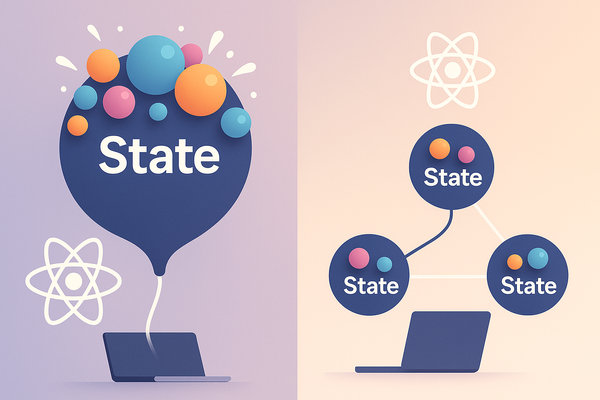Share the Truth, Don’t Normalize the Problem
This screenshot appeared on my feed and speaks directly to jobseekers.
Here’s the post:


I paused to reflect. I recognize this as a “widely-known secret” taboo to air on social media. Yet I’d trusted HR professionals to act objectively. Reading this post shattered that illusion.
I believe everyone owes themselves basic professionalism , even when colleagues don’t. Even if your manager isn’t professional, you can still uphold your own integrity. But this practice is total bullshit.
First: Answer. Even if it's just a template.
Tapi kenyataannya, ketika kandidat bertanya mengenai alasan mereka ga diterima, kami juga tidak selalu bisa membalas atau menjelaskan dengan detail alasannya.
Terkadang, alasannya tidak se-obvious karena skill kamu kurang, pas interview ngang-ngong, atau attitude kurang.
Tapi, kamu bisa saja overqualified/overbudget atau hanya sekedar tidak masuk kriteria spesifik dari User/Hiring manager.
What’s so hard about replying to someone? Just send a rejection. Even if it’s a template.
I can understand if we’re still at the CV review stage, no interview yet. Fine. But if a candidate’s already done an HR interview or user interview, you owe them something. One email. One update. A simple yes or no.
If the reason is “overqualified” or “overbudget,” just say it. That’s better than silence. Can’t write a rejection letter? Ask ChatGPT. Don’t say you don’t have time ,just admit it’s not your priority.
I’ve received good rejection emails. Maybe they’re templates, but at least they’re something. They show respect. They bring closure. They reflect professionalism.



Second: Keep it professional.
I’m confused. As a Software Engineer, we go through take-home tests, data structure problems, and multi-step interviews. That’s what meritocracy looks like.
But then, people get rejected because of physical reasons?
Do they even realize that’s discrimination?
I understand if the team wants someone extroverted or good at communication — that’s fine. Culture fit matters. We work in teams, we need people who can collaborate. But rejecting someone based on their face shape? Or finger length?
That has nothing to do with the job.
They even admit the reasons are “too weird to share.” So they know it’s unprofessional. Still, instead of pushing back or fixing it, they stay silent and don’t send any rejection at all.
You can’t use bad behavior from a hiring manager as an excuse to drop your own standards. If the user gives a weird reason, you still have the job to make it sound professional.
Here are some examples of how you could rewrite absurd reasons into something still respectful:
❌ User said: "Kandidatnya kurang fun, nggak ceria."
✅ Send this instead:
Based on our discussion with the team, we feel your communication style may not fully align with the dynamics of the current team. We’ve decided to proceed with another candidate who fits better with the current collaboration style.
❌ User said: "Mukanya kotak, serem."
✅ Try this:
After internal review, the user had specific expectations for public-facing roles. We’ve chosen to continue with a candidate that more closely fits that context.
❌ User said: "Cari yang jarinya bentet, katanya lebih rajin."
✅ Say this:
The user had certain preferences we acknowledge may not be objective. For this role, we’ve decided to move forward with a candidate who aligns more closely with their current request.
You’re still doing your job. You’re still rejecting. But you’re not blindly forwarding absurd input.
Or better: challenge the input. Tell the hiring manager that rejecting based on someone’s face, body, or finger shape is not acceptable.
That’s your job as a professional too, right?
Third: If you expect our best, do yours.
“Pesanku, lakuin aja yang terbaik, jangan lupa tetep sopan, dan kalau belum lolos anggap saja memang belum rezeki. Tapi jangan sampai patah semangat.”
If you expect candidates to “do their best,” then do yours.
Don’t ask us to stay patient and polite while your side avoids giving feedback, lets bias go unchecked, or drops communication after interviews. We’re applying for a job ,it's a professional transaction. And so is your role.
You expect us to prepare: build our CV, polish our LinkedIn, solve take-homes, pass technical rounds, and show up sharp at every stage.
We expect you to show up too: send a follow-up, give a reason, own the decision, and close the loop.
Hiring isn’t easy. We know that. But that’s exactly why every person involved, HR, recruiter, hiring manager , needs to meet the same professional standard they expect from us.
Respect goes both ways. Process goes both ways. So should the effort.
Lastly: Rejection is redirection. yes, but let’s talk honestly.
“Inget ya, rejection is redirection ✨ :)”
I agree. Rejection can be redirection. Especially if it saves us from ending up in a toxic environment.
Because let’s be real: in some companies ( especially in STEAM ) discrimination still happens. Not just quietly. Openly. Whether it’s based on gender, appearance, personality type, or even weird physical traits like face shape or hand size.
In that kind of environment, rejection is better than fake inclusion. Better than being hired only to be pushed out during probation, or sidelined because you don’t “look the part.”
But here’s the thing: that doesn’t make it okay.
Just because rejection protects us from a bad system, doesn’t mean we should accept the system as normal. The standard should be meritocracy. Skills. Work ethic. Not whether you’re tall enough or have the “right” energy.
Normalizing this behavior signals that the hiring process isn’t about capability, it’s about bias. That’s not how we build strong teams. That’s not how we grow inclusive, high-performing companies.
So yes , rejection is redirection. But that only matters if we’re all moving in the right direction: toward better hiring, honest feedback, and real professionalism. Not surface-level quotes with zero change behind them.
Share, but don’t normalize.
Thanks for sharing the insight. Stories like this matter, because they show what’s really happening behind the scenes. But we have to draw a clear line: sharing is not the same as normalizing.
If something isn’t professional, say it. If something breaks meritocracy, call it out.
Recruitment should be based on skill, not superstition. Decisions should reflect capability, not bias. And above all, every person involved (HR, hiring manager, recruiter)should hold the line on professionalism.
If you know a good candidate , someone you’ve worked with, someone whose performance you’ve seen firsthand, lift them up. Recommend them. Speak up not because of how they look or some vague "energy," but because you know how they work. That’s how meritocracy is built: on real experience, not mystic filters.
Keep sharing. Keep telling the truth. But let’s stop accepting bad practices as “just how it is.” Let’s raise the bar, because if we all do our part, we all move better.


